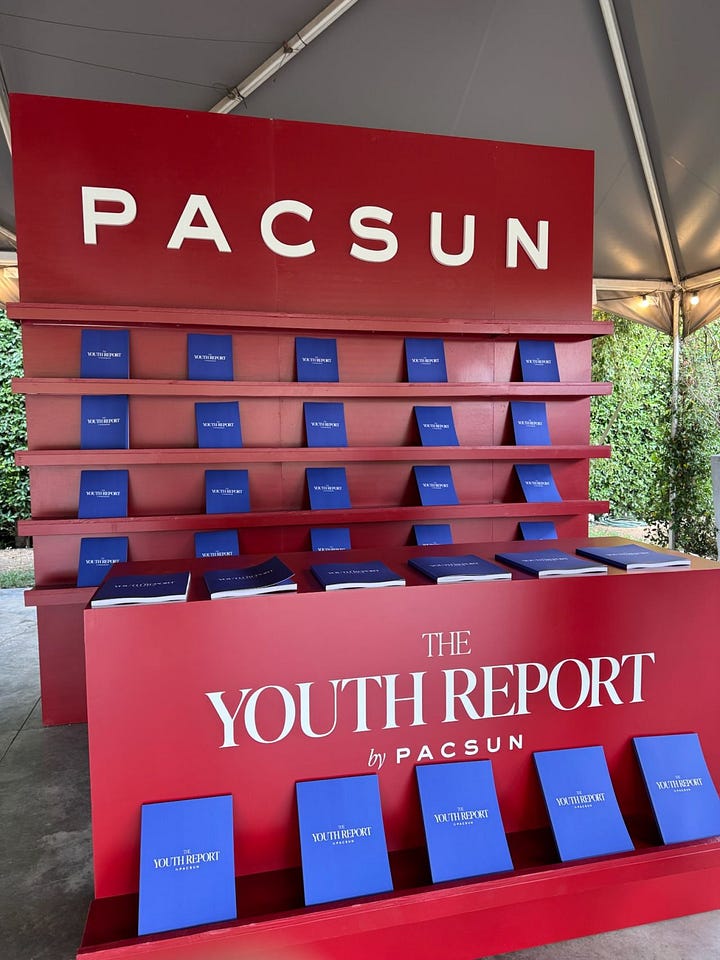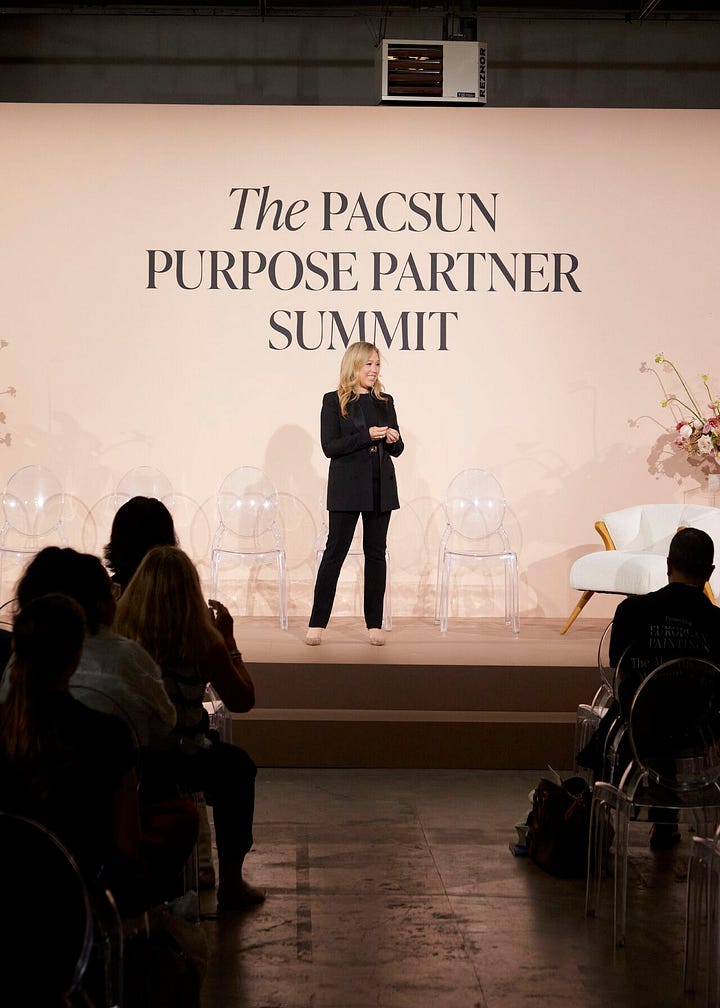Identity, Influence, and Status: Decoding Pacsun’s Youth Report
What sustainability leaders need to know about the contradictions shaping Gen Z and Gen Alpha consumers.
Welcome to Green Behavior, the weekly deep dive from SFF Founder Brittany Sierra exploring the psychology behind consumer choices and how understanding behavior can turn sustainability from a niche movement into a cultural norm.


Pacsun dropped its first-ever Youth Report with GlobalData, surveying 6,000 U.S. Gen Z and Gen Alpha consumers (ages 11–24) to decode how identity, social media, mental health, and culture shape what they buy.
Introduced at Pacsun’s inaugural Purpose Partner Summit, the report is part of the brand’s larger push to move from mall retailer to cultural convener by attaching itself to broader conversations around identity, community, and relevance.
At first glance, the report doesn’t read like a sustainability story. Its focus is on mental health, self-expression, and belonging. But for anyone working in sustainable fashion, that cultural context matters, because these are the same forces that shape what people buy and how they justify it.
On paper, the report’s findings are exactly what you’d expect: both generations lean into self-influence, say they avoid fast fashion, and emphasize authenticity and self-expression.
The problem is that surveys rarely line up with reality, and this one is full of contradictions.
Beneath the marketing takeaways, the data shows the familiar gap between self-perception and behavior, and for sustainability professionals, that gap is exactly where strategies either connect or fall flat.
Understanding how identity and emotion shape Gen Z’s choices is the only way to make sustainability scale—because people, especially younger generations, don’t buy based on their values alone.




